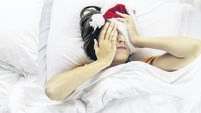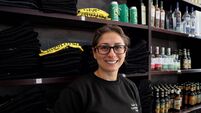Mince pies, mistletoe and festive foods you might not know are toxic for dogs

Picture: iStock
From twinkling lights to Christmas food, experts say dogs and cats should be carefully monitored around your home at Christmas, especially around generous children and indulgent ‘grandpawents’.
Veterinary nurse at Gilabbey Veterinary Hospital, Bronwyn Jeffers, says it is important to inform all guests of potential toxins and hazards for your dog, and owners should monitor their dog when visiting a pet-free home.
Already a subscriber? Sign in
You have reached your article limit.
Subscribe to access all of the Irish Examiner.
Annual €130 €80
Best value
Monthly €12€6 / month
Introductory offers for new customers. Annual billed once for first year. Renews at €130. Monthly initial discount (first 3 months) billed monthly, then €12 a month. Ts&Cs apply.
CONNECT WITH US TODAY
Be the first to know the latest news and updates











